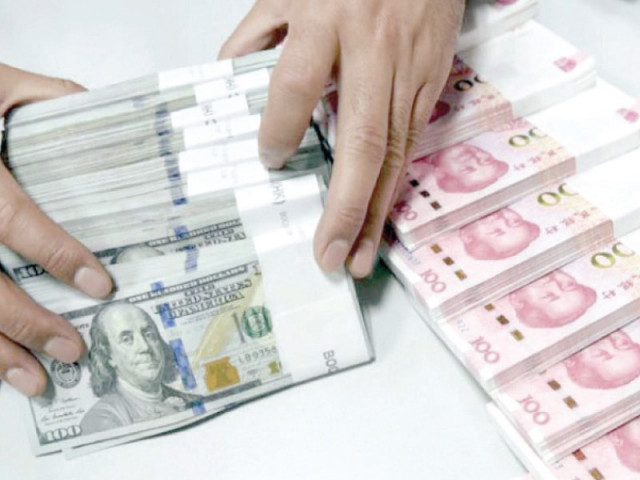Tough measures loom
Govt will need tax reforms, tariff hikes, depreciation to get bailout

The International Monetary Fund (IMF)’s team has done its homework and provided certain policy prescriptions for the government. On June 7th, banker-turned-economic czar Muhammad Aurangzeb will deliver the first speech of the coalition government headed by Prime Minister Shehbaz Sharif. While political parties not part of the cabinet may not support the tough budgetary measures to be announced, Pakistan has little or no choice but to start working from year one. A front-loaded set of conditions is apparently a prerequisite for the IMF’s bailout.
The matter may be discussed at the Executive Board level of the IMF to decide on Pakistan’s debt sustainability, delaying the Staff Level Agreement until certain events are met. Previously, Pakistan had to secure undertakings from bilateral friends to continue their assistance, without which debt repayments were impossible. Now, a tougher budget aimed at widening the tax base, penalising non-filers, removing exemptions, burdening the salaried class, targeting the real estate and retail sectors, and curtailing discretionary spending is on the way.
Similarly, increasing gas and electricity tariffs, getting parliamentary approval for the budget, possible currency depreciation, continued tight monetary policy, and some support from China on independent power producer (IPP) debt restructuring and bilateral loans are warranted as prior conditions. Secret trips of top Pakistan Muslim League-Nawaz (PML-N) leaders, followed by ministerial-level engagements and a possible PM’s visit, are required to convey Pakistan’s inability to repay Chinese debt using IMF/Western lenders’ dollars. Some engagements require quiet diplomacy without irking friends and publicly creating headlines on the impact of lending under Belt and Road Initiative (BRI) to emerging markets.
While a CPI reading of 13-14% in May could increase the probability of interest rate cuts, the fear of second-round inflation after tariff hikes, currency depreciation, and budgetary taxation measures could delay a reduction in the monetary policy rate by the State Bank of Pakistan (SBP). Authorities have had differing opinions on debt servicing costs in the outgoing fiscal year.
Thus, a 6.8% budget deficit target for next year, along with a 1% primary surplus, implies that nearly 8% of GDP (nearly 70-80% of tax revenues) goes to debt servicing. For the economy to grow and the debt impact to be diluted, long-term interest rates must be reduced to single digits. Controlling money supply, government borrowing, increasing the tax-to-GDP ratio, growing exports, restraining imports, and demonetising Rs1000/5000 notes must be done to help private and public accounts.
In the past, the IMF has been lenient in offering programmes with softer targets, no front-loaded conditions, and waivers on missing benchmarks. This time, Aurangze’s team has clear objectives to comply with: reducing circular debt, privatising DISCOs, growing tax revenues, attracting mutually beneficial foreign investments, and enhancing the export base. Not a single day ought to be wasted in achieving these strategic goals vital for the country’s economic survival. There has been a strong push from Special Investment Facilitation Council (SIFC) and the cabinet to restructure the Federal Board of Revenue (FBR), use diplomatic contacts to attract Gulf Cooperation Council (GCC) investments, and privatise Pakistan International Airlines (PIA).
This is the beginning of a turnaround if executed wisely. This government has 18 quarters of economic policy-making that can be utilised to accelerate tax widening, grow labour-intensive export-oriented industries, improve law and order to offer ease of business to investors, reduce red tape, and digitise government intervention in economic generation. Hiring top talent to overhaul the skills of policymakers and continuously reinvesting in the next leg of growth—startups, technology, artificial intelligence, research and development, and top-class primary and secondary education—along with redesigning railways and getting rid of DISCOs is crucial.
We have seen numerous changes in DISCOs’ management and boards that have failed to turn around the losses now eating a significant part of taxes from the honest and poorer lower and middle class. The real tax contributors in Pakistan are the squeezed lower to middle class, as most taxes are raised indirectly on consumption. The government must reduce taxes on the salaried class and Small & Medium sized Enterprises (SMEs) to ensure compliance and job creation while targeting the retail, agriculture, and real estate sectors. Taxes should progressively increase on second, third, and subsequent purchases or holdings of real estate to keep land prices low and incentivise construction.
Invariably, the first and second years of the government are likely to be tough in terms of relief, but that is the time to steer the boat in different directions to address economic inefficiencies. In my opinion, outright privatisation of DISCOs and steel mills should be the next target instead of offering projects with 25-40% Internal Rates of Return (IRRs) to foreign investors. You are better off doing it yourself or offering structured notes with 10-12% dollarised returns to overseas Pakistanis, who end up keeping 80% of their wealth in rupees anyway. Unfortunately, top global investors from Western economies haven’t spent big in Pakistan in the last decade. We have already utilised the Chinese appetite and are now seeking to tap Arab countries. Another episode of misgovernance, and all hell will break loose.
THE WRITER IS AN INDEPENDENT ECONOMIC ANALYST
Published in The Express Tribune, June 3rd, 2024.
Like Business on Facebook, follow @TribuneBiz on Twitter to stay informed and join in the conversation.



















COMMENTS
Comments are moderated and generally will be posted if they are on-topic and not abusive.
For more information, please see our Comments FAQ